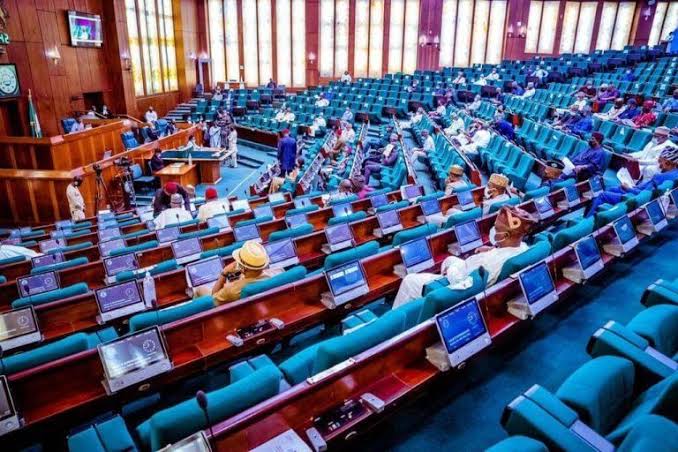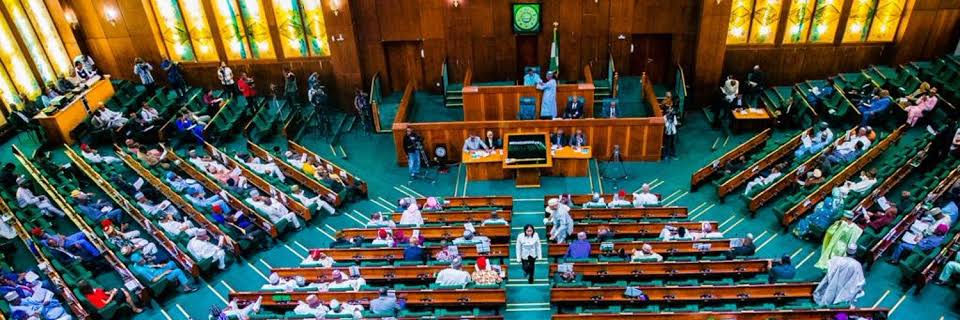Isaac Samuel
The National Assembly is set to resume plenary sessions on Tuesday, September 23, 2025, and it is returning under a cloud and challenges that could smear its reputation for the rest of the year.
In July, the Senate and House of Representatives adjourned for their annual recess for two months.
While making the announcement on July 24, Senate President Godswill Akpabio directed ad hoc and standing committees to continue their work during the break and encouraged senators to use the period to finalise pending reports and carry out oversight duties.
Similarly, the lower chamber which began its recess on Wednesday, July 23, advised members to take advantage of the break to engage in constituency work, attend to local issues, and monitor federal projects within their areas.
The annual recess is a routine part of the National Assembly’s legislative calendar, providing lawmakers the opportunity to balance national duties with constituency responsibilities and personal commitments.
Since the lawmakers began their annual recess, the Assembly has faced criticisms from Nigerians who feel it has been slow, divided, and caught up in drama that does little for the country.
In recent months, stories from the upper and lower chambers have dominated headlines , not about bills passed, policies debated, or laws enacted but about personal disputes, internal spats, and controversies that have left citizens questioning the institution’s relevance.
The 10th National Assembly led by Akpabio and Abbas, is walking a thin line between managing political tensions within its ranks and meeting the expectations of a nation hungry for development and good governance.
Public perception has been harsh. The Assembly has been accused of being a rubber stamp, approving everything that comes from the executive without rigorous scrutiny.
Nigerians are also worried about mounting public debt, delayed reforms, and whether their elected representatives are prioritizing their constituencies over political games.
As lawmakers prepare to reconvene, all eyes are on whether they can regain the trust of the people and demonstrate that the legislature can be a force for meaningful change.
At the same time, the political calendar is looming large. With the 2027 elections approaching, the Assembly is racing against time to complete critical legislative work.
Constitutional amendments, electoral reforms, and oversight of public funds are all on the agenda, but internal politics, disagreements, and public controversies threaten to slow down progress.
The coming sessions are crucial not just for the lawmakers’ careers but for Nigeria’s democratic process itself.
For instance, in the last six months, the Nigerian Senate has been caught up in the suspension of Senator Natasha Akpoti-Uduaghan of Kogi Central.
The drama started when she protested her assigned seat in the Senate chamber, clashing with Senate President Godswill Akpabio.
She was asked to leave, and the Senate slapped her with a six-month suspension.
While the world was expecting the Senate to accept Akpoti-Uduaghan back, the upper chamber wrote to her through the Acting Clerk to the NASS, Yahaya Danzaria, notifying the embattled senator that her six-month suspension subsists until the Court of Appeal delivers judgement in the suit she instituted against the Senate.
This means Kogi Central has gone without proper representation for months, and critics say the Senate is more interested in politics than in the real work of lawmaking.
The Akpoti-Uduaghan saga has been the top story in the Senate all year, overshadowing debates on bills, budgets, and national development.
While the Natasha issue rages, the National Assembly is also working on big constitutional reforms. The House of Representatives’ Constitutional Review Committee, led by Deputy Speaker Benjamin Kalu, has proposed changes aimed at reducing presidential powers, reforming elections, and making government more inclusive. A public hearing is set for September 22 at the Transcorp Hilton
One proposal would remove the President’s power to proclaim the National Assembly and hand it over to the Clerk. Similar changes would affect state Houses of Assembly. Another would allow elected lawmakers to be sworn in immediately after getting their Certificate of Return from INEC, cutting out delays caused by leadership.
The committee is also recommending a new body called the Political Parties Registration and Regulatory Commission (PPRRC) to manage political parties, leaving INEC to focus on running elections. They also want all elections, presidential, governorship, and legislativeto be held on the same day to save costs and time.
So far, 46 requests for new states and 117 for new local government areas have been converted into bills.
Over in the House of Representatives, tensions are also high. Some members are angry with Speaker Abbas and are planning a showdown when lawmakers return from recess.
Issues include how privileges are shared, budget performance, and concentration of projects in some regions over others.
Members were reportedly upset after 785 new staff were recently inducted without their input. Some see it as a sign that the Speaker has been keeping them out of important decisions. Over the recess, lawmakers have been forming caucuses to discuss grievances, and the expectation is that tempers may flare when the House resumes.
Another major issue is the relationship between the executive and the legislative arm. Critics have often called the 10th National Assembly a rubber stamp because it tends to approve whatever comes from the executive.
Akpabio, however, insists the legislature is doing its job and highlighted that public petitions show Nigerians still trust the Assembly. Observers believe that still, perception matters. If people believe lawmakers are only there to nod at presidential requests, it damages the institution’s credibility.
Fiscal matters are also in the spotlight. In July, the National Assembly approved over $21 billion in foreign borrowing for the 2025 budget. The approval also includes loans of 4 billion euros ($4.70 billion) and 15 billion yen ($102.26 million), a $65 million grant as well as $2 billion dollar-denominated borrowing at home.
The House also approved an additional $347 million loan under the 2025–2026 External Borrowing Plan. While the National assembly has continued to approve the requests of the President seeking more loans, tensions flared earlier this month when Finance Minister Wale Edun and Speaker Abbas clashed over Nigeria’s debt profile.
Abbas warned that the nation’s debt had risen to N149.39 trillion ($97 billion), with a debt-to-GDP ratio of 52 percent which he said is above the 40 percent legal limit. Edun, on the other hand, said Nigeria’s debt was becoming sustainable.
The 10th National Assembly is now in the second half of its four-year term. With the 2027 elections on the horizon, lawmakers have limited time to complete pending tasks. This includes passing the 2026 Appropriation Bill and reviewing the Medium Term Expenditure Framework (MTEF) 2026–2028, which guides budget preparation.
Electoral reforms also remain urgent. Past mistakes in the Electoral Act created super delegates and left some party stakeholders disenfranchised. The Assembly must fix these issues to ensure fair and credible elections in 2027.
Many observers are of the opinion that the return from recess is a test for the National Assembly. They wondered if the lawmakers could put aside political fights and focus on lawmaking while they also show independence from the executive and begin to responsibly approve loans.
But for ordinary Nigerians, the answers matter. The next few weeks will be crucial in shaping the Assembly’s legacy.




